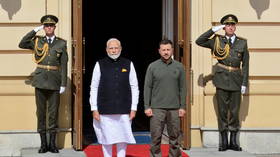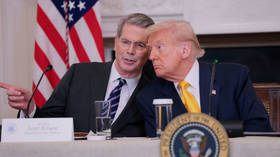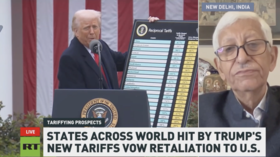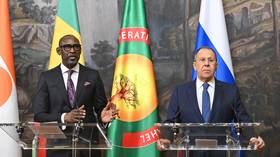Reform is ‘key’ to UN’s relevance – India
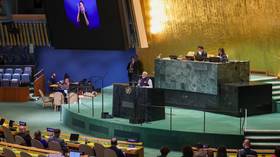
Indian Prime Minister Narendra Modi advocated reforms to global institutions while stressing the need for peace as he addressed the 79th UN General Assembly session in New York on Monday.
Speaking at the Summit of the Future, Modi stated that “success of humanity lies in our collective strength, not on the battlefield. For global peace and development, reforms in global institutions are important. Reform is the key to relevance.”
His remarks came amid the conflicts in Ukraine and Gaza, and the deteriorating situation on the Lebanon-Israel border. Israel launched a large-scale military operation against its northern neighbor on Monday, described as the deadliest since the 2006 Israel-Hezbollah war.
Israeli strikes had killed at least 492 people as of Monday night, including 35 children and 58 women, with 1,645 people wounded, according to Lebanon’s Health Ministry.
#WATCH | Speaking at the 79th UN General Assembly session, PM Modi says, "Success of humanity lies in our collective strength, not in the battlefield. For global peace and development, reforms in global institutions are important. Reform is the key to relevance." pic.twitter.com/UoXtPVGArN
— ANI (@ANI) September 23, 2024
On Sunday, Modi met with Palestinian Authority President Mahmoud Abbas and expressed “deep concern” over the humanitarian crisis unfolding in Gaza and the “deteriorating security situation in the region.”
The Indian prime minister “reaffirmed India’s unwavering support to the people of Palestine, including continued humanitarian assistance,” according to a statement from New Delhi. Modi called for a ceasefire, the release of Israeli hostages, and a “return to the path of dialogue and diplomacy.” He stressed that only a two-state solution, India’s official stand on the decades-long conflict, “will deliver enduring peace and stability in the region.”
Modi also conveyed India’s continued support for Palestine’s membership at the UN. New Delhi has been walking a diplomatic tightrope on the Gaza conflict as it continues to maintain strong diplomatic and economic relations with Israel.
India has condemned the October 7 raid by Hamas militants on Israel that led to the deaths of some 1,200 people, unequivocally terming it an act of “terrorism.” At the same time, Modi has expressed concern over civilian losses in Gaza since the outbreak of the conflict. More than 41,000 Palestinians in the enclave have been killed in Israeli military operations, according to local health officials.
India has largely abstained on most resolutions related to Israel at UN bodies since the start of the Israel-Hamas conflict. Last week, New Delhi abstained on the United Nations General Assembly’s resolution demanding an end to Israel’s occupation of Palestine within a year. The resolution was eventually passed with an overwhelming majority.
On the sidelines of the General Assembly, Modi also met Vietnamese President To Lam, Armenian Prime Minister Nikol Pashinyan, and Ukraine’s Vladimir Zelensky.
Modi noted in a post on X (formerly Twitter) that he had reiterated India’s support for an “early resolution of the conflict in Ukraine and restoration of peace and stability.” The Indian leader traveled to both Moscow and Kiev earlier this year to meet Russian President Vladimir Putin and Ukrainian leader Zelensky, highlighting the need for a diplomatic resolution to the conflict and not “on the battlefield.”
